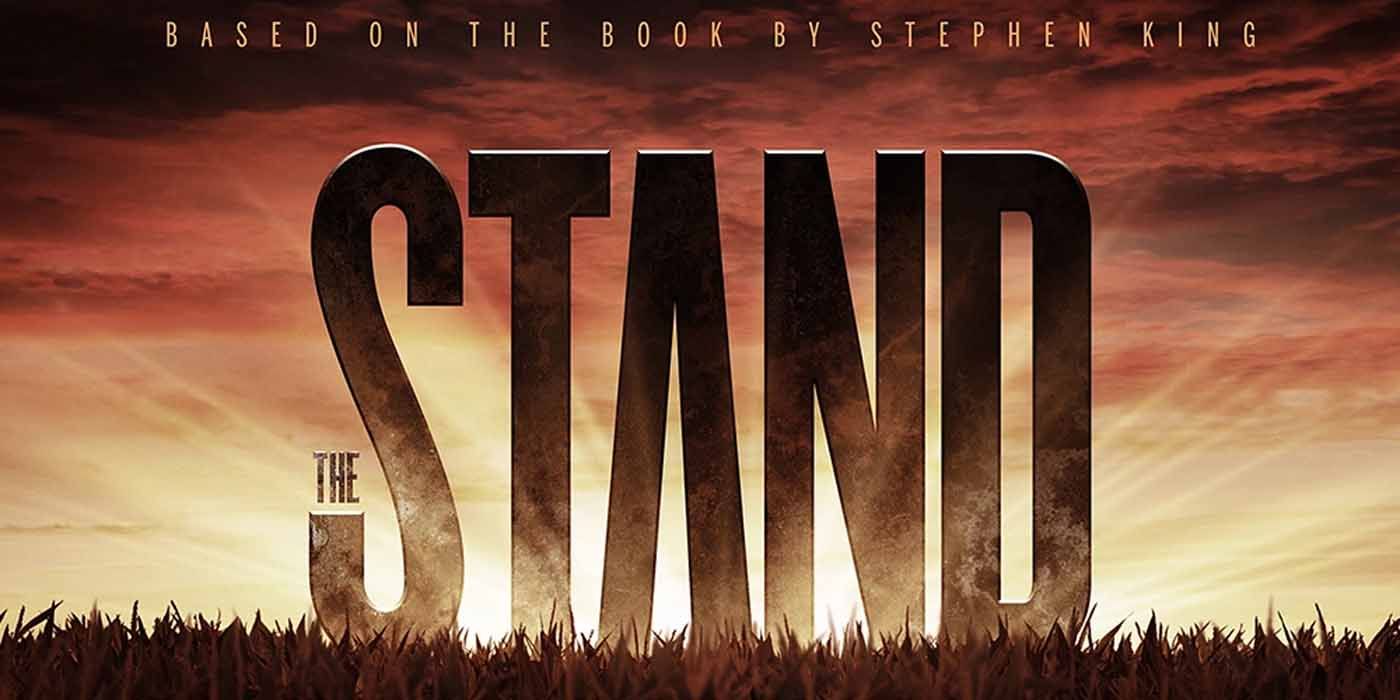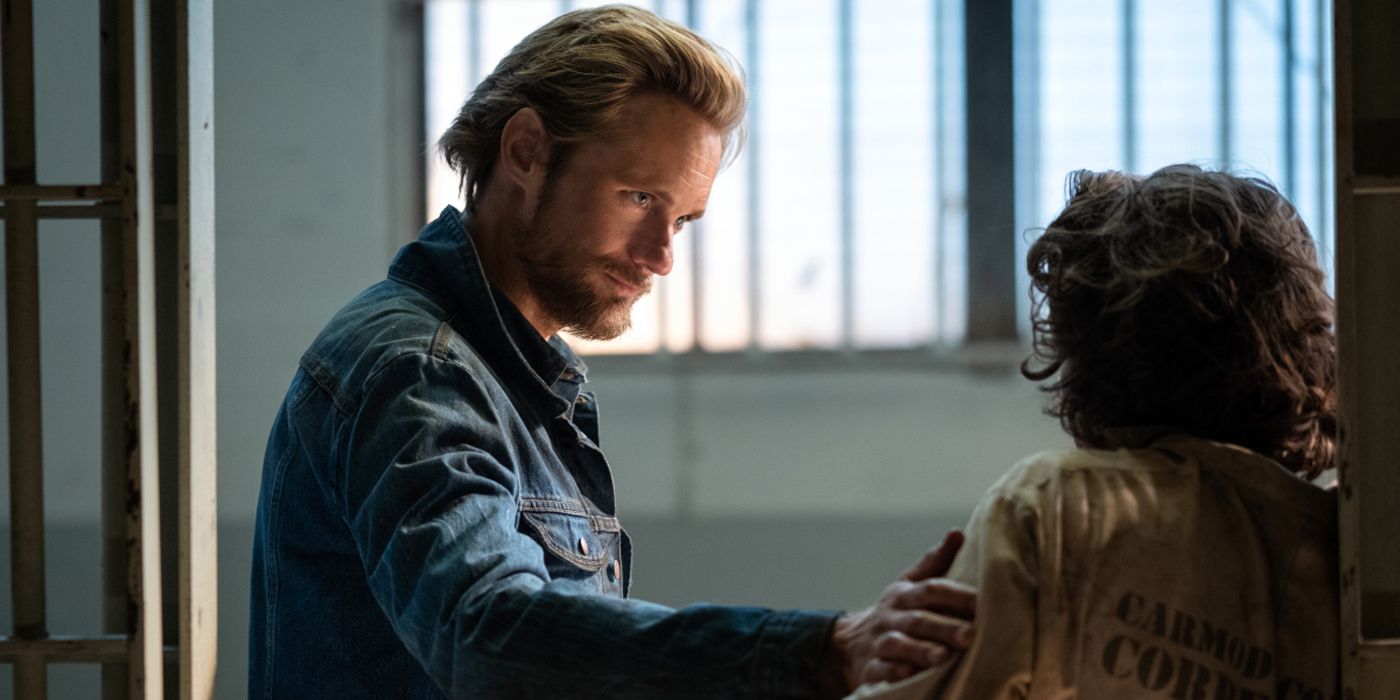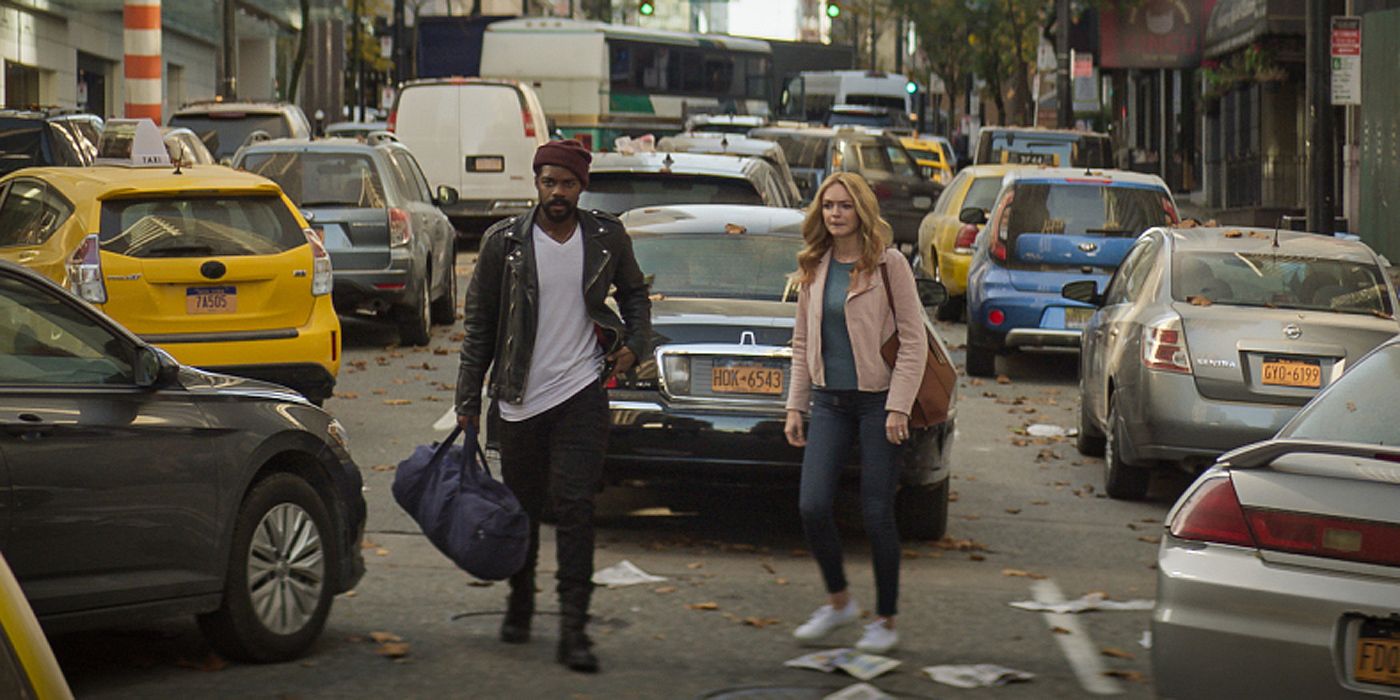One of the most hyped original series coming to CBS All Access just in time to close out the year is an ambitious miniseries adaptation of Stephen King's universally acclaimed novel The Stand. Telling the tale of the forces of good and evil battling for the fate of humanity after civilization collapses in the face of a devastating contagion, the 1978 novel was last adapted for the screen in 1994 and stuck in development hell for years as a planned feature film before its current iteration.
In a roundtable interview attended by CBR, executive producers Benjamin Cavell and Taylor Elmore discussed adapting the novel as a nine-episode television miniseries, what parts of the novel they found painful to omit from the adaptation and updating certain elements of the story for modern audiences with King's blessing.
"There was a coda [Stephen King] wanted to do for 30 years that has been just germinating in his mind," Cavell explained about the miniseries including an extended ending from the novel's conclusion personally written by King and his son Owen. "Now, whether he knew he was going to trust us to tell that story from the very beginning, that's a question for him. He read the first couple drafts that we had done of the first couple episodes and, I think, really was convinced by that that we had a vision for the show and how we wanted to mount this, how we wanted to tell this story in 2020. I imagine that gave him confidence to say, 'Okay, these guys know what they're doing with the story we're telling and the coda that I want to write does really fit in with their vision of how this book plays out.'"
As opposed to the novel, which largely played out its events linearly, the CBS All Access miniseries is framed in the immediate aftermath of the devastating virus that has swept across the globe, with flashbacks revealing how many of the main characters reacted to the end of the world as they knew it. According to Cavell, the change in storytelling progression was a way to differentiate itself from other films and television series that depicted virulent contagion.
"Having a nonlinear narrative differentiates us from the original miniseries, which has the same kind of linear narrative as the book, but we when first were sitting down to lay all this out, it certainly felt to me that everyone has seen Contagion and Outbreak -- and I love those movies -- did we want people to sit through three episodes of the world dying before we got to the meat of our story?" Cavell observed. "For me, and I know Taylor feels this way too, The Stand isn't really a story about a pandemic -- of course part of it is and it has a pandemic in it -- but really, the pandemic is the mechanism in which the world gets emptied out so that our heroes can walk to Mordor across a dead world. It felt like since the book is so much about what comes after, this elemental struggle between -- I hesitate to say [it] -- good and evil, the forces of light and dark or whatever, it felt like that's our story and where we wanted to get to. And starting there felt like, in some ways, the most honest way to way to do because that's the story we're doing."
With the novel running for over one thousand pages, Elmore acknowledged that there was a lot of material to contain in a single season. Cavell confirmed that CBS was open to providing however many episodes the production felt were necessary to adapt the story for television, while consciously leaving the door open for King's coda, but ultimately the nine-episode order felt perfect to maintain fidelity to the source material while still keeping the narrative momentum going. In response to a question from CBR, the executive producers revealed what sequences they regretted omitting from their adaptation the most.
"In adapting a novel, some of the stuff that we hated to cut, when we started thinking about, some of the stuff works [better] in a novel," Elmore admitted. "Stephen seems to write his novels as a sort of love letter to the reader so a lot of that takes place internally. There are definitely swathes of the book where not a lot of action is happening, it's all internal monologues. Once we started digging in, we found that we could pull out some story without really tearing into the fabric of what made the story great. It's always painful to cut stuff but, in the end, it's cleaner; if we left it in there, it's like a ride that never stops."
"The big sort of excision that we made from the unabridged version was to cut the character of The Kid," added Cavell. "I am still very proud that we were able to restore, for example, Rita Blakemoor who has this sort of sojourn with Larry in an empty Manhattan, who's played in our series by Heather Graham. Their stuff in Episode 2 is really just beautiful. They weren't able to include her in the original miniseries; Larry gets out of New York with Nadine which, to me, is a real change and real loss -- I get it, they had four episodes and we have nine. We were really proud to restore that and do some other things that they couldn't do and we sort of initially 'Oh, this great! They didn't do The Kid! We'll do The Kid!' And yet, there's not a lot of reason for The Kid to exist, it turns out. He's not really a character and his only function is to get Trashcan Man close to Vegas but...Trashcan Man can just get close to Vegas [on his own]. He could probably find it and get there the way he gets everywhere else! [Laughs]"
Cavell confirmed there were talks with Marilyn Manson about the possibility of portraying The Kid in the miniseries but ultimately felt there was nothing to really tie the character to the larger story other than transporting Trashcan Man to Las Vegas. Cavell also noted that omitting The Kid tightened the dynamic between Trashcan Man and Lloyd Henreid, one of the arch-villain Randall Flagg's close associates.
"I think [Trashcan Man and Lloyd's relationship] is really interesting in the book and I think, I hope, I believe we were able to find some really interesting places to go with that based, in part, on the two actors," Cavell continued. "They are obviously, in some way, battling for this dad figure of Flagg, for his favor. Everybody in his orbit is battling for his favor. And that dynamic, between them, with Rat Woman included -- Rat Man is now Rat Woman in our retelling, played by Fiona Dourif who's beyond brilliant -- that was the dynamic to explore; that sibling rivalry for the favors of the all-powerful dad Randall Flagg."
Cavell confirmed that Stephen King personally reviewed the draft of every episode, along with directorial and casting choices, while Owen King was a prominent figure in the writers room. King grew to trust the producers to the point where he didn't ask for all the changes to be run by him for review and approval which was a major boost in confidence from the creative team as fans of the prolific author. One of the things the creative team looked to change as they modernized the story from its initial publication in 1978 was Frannie Goldsmith, with King's blessing and encouragement.
"Giving her a little more agency than she has in the book; in the book, she tends to wring her hands a lot and not want to send Tom to Vegas," Elmore explained. "Odessa Young is one of the most dynamic actors that I've ever worked with. She would not be caged by that sort of [depiction] and we would work with her who Frannie really could be and what a modern, 20-year old girl be versus a girl in 1978. And I think we came up with some interesting ideas and she was really helpful. That was one part that was really gratifying to get to mingle with."
Cavell shared that he and Elmore first began working together on the television series Justified and worked with the show's cast often in developing their characters. This experience led to Cavell seeking Elmore to join him in adapting The Stand, to help work with the ensemble cast in modernizing the story and their respective character arcs. One such instance was the creative team working closely with Whoopi Goldberg and her portrayal of Mother Abigail as not coming off as a caricature but rather grounded and real. Cavell also cited working with Brad William Henke on his portrayal of Tom Cullen and the character's developmental challenges.
The Stand stars Alexander Skarsgård as Randall Flagg, Whoopi Goldberg as Mother Abigail, James Marsden as Stu Redman, Odessa Young as Frannie Goldsmith, Jovan Adepo as Larry Underwood, Amber Heard as Nadine Cross, Owen Teague as Harold Lauder, Henry Zaga as Nick Andros, Brad William Henke as Tom Cullen, Irene Bedard as Ray Bretner, Nat Wolff as Lloyd Henreid, Eion Bailey as Weizak, Heather Graham as Rita Blakemoor, Katherine McNamara as Julie Lawry, Fiona Dourif as Ratwoman, Natalie Martinez as Dayna Jurgens, Hamish Linklater as Dr. Jim Ellis, Daniel Sunjata as Cobb and Greg Kinnear as Glen Bateman. The series premieres Dec. 17 on CBS All Access.



